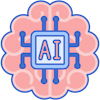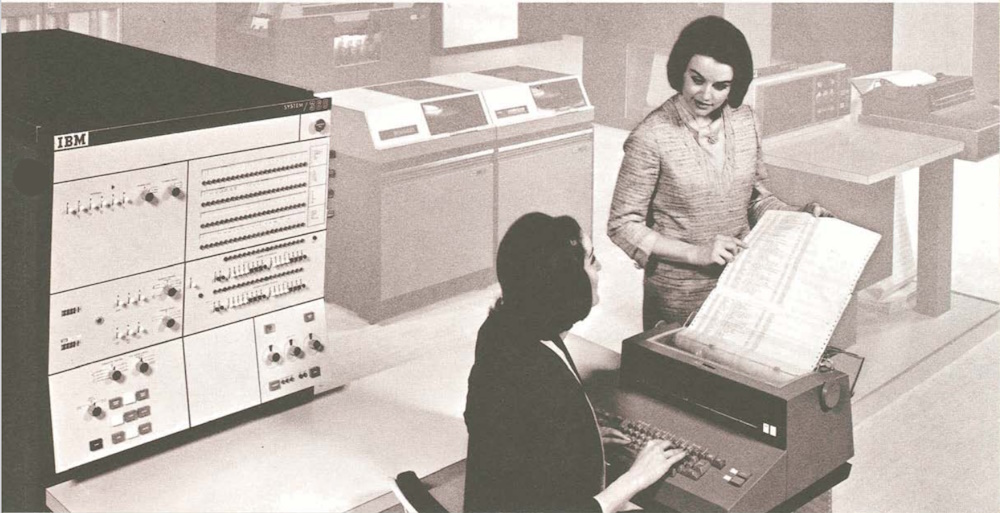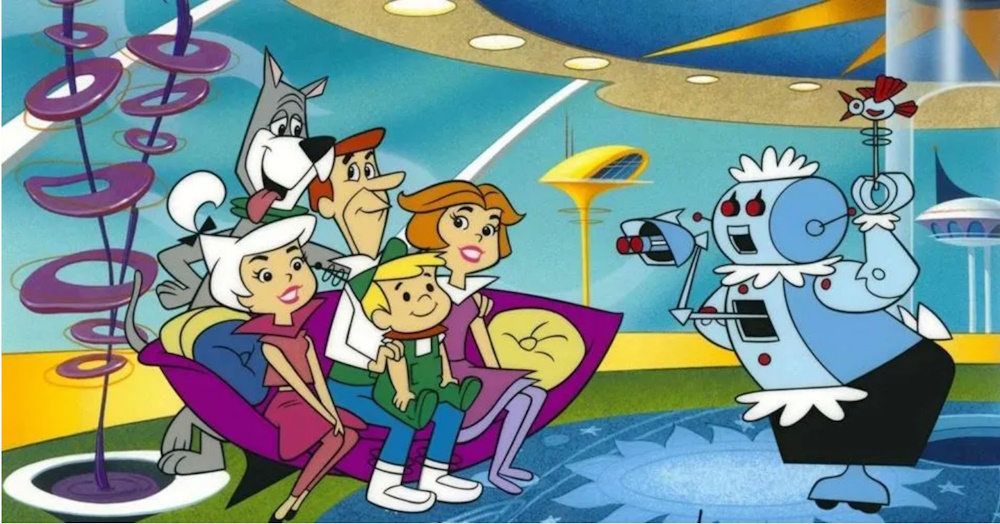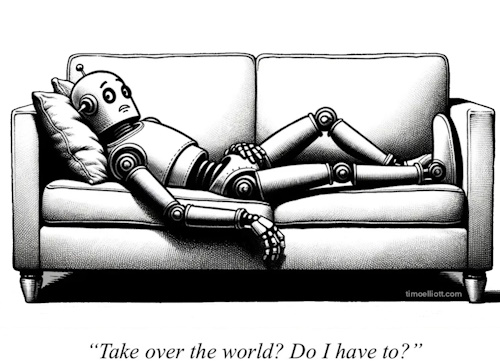 The Age of AI
The Age of AI
Some thoughts on the Computer Age and the Age of AI
"It was to have been the nuclear age. It became the computer age. In the past quarter-century, the computer moved from the margins of our existence into the center of our lives. Few technologies came so far so fast."
That was IBM's assessment in the year 1976. Now, it's deja-vu all over again. IBM: "The computer's spectacular growth--in numbers, in power and capability, in the variety of things it does--came as one of the great surprises of modern times."

IBM System 360 CPU, peripherals, and operators
Fast forward to 2024 and AI, brought to the fore by the public release of the generative AI product ChatGPT. AI has been simmering for years, but now it's come to a boil. This is the new great surprise of modern times. This is the Age of AI.
Our children will grow up as the AI Generation
They will converse with chatbots as past generations talked with grandpa. Robots like Optimus will greet people at the door, offer guests something to drink, and clean up after the holiday party. "What? Pick my clothes up off the floor? Why can't Rosie do it?" This will be the lament of parents in a house with robot helpers. Maybe Rosie will sense the discord and offer to read the child a book to calm her down. Or help create an avatar for the school project. And of course Rosie will be in the passenger's seat as the self-driving car takes the children to school. Too bad, robots are banned from the classroom. Perhaps they can sit outside and chat while waiting for the class to be dismissed. Wonder who starts the conversation? What will they talk about? Will they talk at all or perhaps just move their head, torso, and limbs to keep their joints lubed?

Scene from the 60s TV series, The Jetsons
How long will it be before that vision becomes reality? Optimus is on Elon Musk's horizon, Tesla already has self-driving cars, and AI video generators can easily create avatars today.
To unpack the future AI Generation, let's look back at the first computer revolution, presaged by the ascendance of digital computers and industrial automation in the 60s and 70s. The main fear then was job loss. And they were right. Elevators in big buildings were a friendly space when there were elevator operators. Want to take a trip? Walk to Main Street and visit the courteous travel agent. There is more time to travel since the assembly line job was replaced by robots. But computers and automation created many new jobs, too. Computer operator, data entry operator, computer programmer, systems analyst, and data processing manager were all new job titles in the first computer revolution. People were trained in great numbers in trade schools, colleges, and universities all over the country. For many growing up in America, the second language was often COBOL or FORTRAN, not French or Spanish.
In the Age of AI, we can use whatever language we want
Just be sure to construct an appropriate natural language prompt. This is our new challenge; how to interact with our AI systems and helpers. Will an artist give up the canvas since the original artwork is saved to disk? Will lawyers ever need to look up a case in a law-book or doctors a disease? Or will we have robot doctors and lawyers? For sure, there will be no drama in the courtroom or doctor's office, for our AI buddies lack emotion. Bedside manner will be replaced by a statistical prediction of potential outcomes, maybe even an algorithm-based analysis of how much longer we have to live. "You're likely to live 2 years 5 months and 3 days longer, Mr. Smith, if you give up those cigars you love so much."
The new fear is that a Terminator will take over the world
Maybe we've just watched too many AI science fiction movies. Ironically, the one protection we all have is to unplug (advice once given by Grace Hopper), disconnect the power to the machine, and return to a world before electricity and machinery, a world where sadly many people in poor countries live today. The most likely protection from Terminator is the human spirit that controls the machines, something AI lacks. When queried, here's what ChatGPT said:
As an AI language model, I don't have consciousness, self-awareness, or subjective experiences. My responses are generated based on patterns in the data I have been trained on, which includes text about human emotions and experiences, but I do not have feelings myself

The Future is Today
In 1976 IBM looked to the future of the computer age: "Someday people may be able to tell the computer in their own words what they want it to do. What's ahead? Many more users at terminals [devices] linked to computers. Electronic machines being used in many more ways to help people work better together in an ever more complex world."